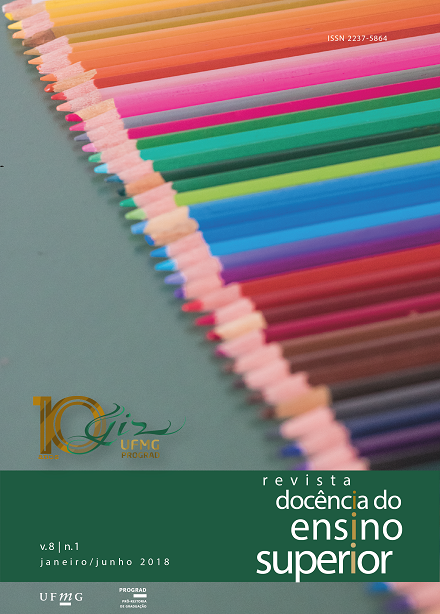Faculty careers in stricto sensu postgraduate program
a study in brazilian private institution of higher education
DOI:
https://doi.org/10.35699/2237-5864.2018.2312Keywords:
Professor career, Professor career development, Stricto sensu programsAbstract
This paper aims to present results of a research oriented to investigate faculty careers in stricto sensu postgraduate program developed by Brazilian private institution of higher education. Under a multidimensional approach, which spans career impacts under different instances – personal, organizational and societal – the study was conducted by a qualitative and descriptive-analytical research, involving semi-structured and in-depth interviews with professors of stricto sensu postgraduate program in Administration of a Brazilian private higher education institution. As results, it was possible to identify career scripts expressing modes of engagement; difficulties, conflicts and dilemmas; as well as management strategies aimed at fulfilling macro-institutional requirements. In conclusion, the respondents expressed the role and relevance of the demands associated to the achievement of career scripts, goals, and results outlined by the Brazilian Federal Agency for Postgraduate Education – CAPES.
Downloads
Downloads
Published
Issue
Section
License
Authors who publish in this journal retain the copyright and grant the journal the right of first publication, with the work simultaneously licensed under the Creative Commons Attribution License which allows the sharing of work with acknowledgment of authorship and initial publication in this journal.
Authors are authorized to take additional contracts separately, for non-exclusive distribution of the version of the work published in this journal (e.g. publish in institutional repository or as a book chapter), with acknowledgment of authorship and initial publication in this journal.
Open access policy:
Revista Docência do Ensino Superior is an Open Access journal, which means that all content is available free of charge, at no cost to the user or their institution. Users may read, download, copy, distribute, print, search, or link to the full texts of the articles, or use them for any other legal purpose, without seeking prior permission from the publisher or author, provided they respect the license to use the Creative Commons used by the journal. This definition of open access is in line with the Budapest Open Access Initiative (BOAI).



























